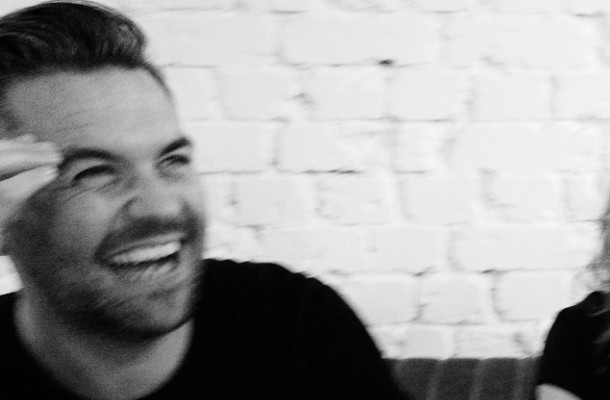
Uncommon: We Promised Ourselves We’d Never Get Paid to Do the Dance

A year ago, give or take a week, Nils Leonard jumped on the phone with LBB to talk about why his new venture, Uncommon Creative Studio, launched with his former Grey colleagues Lucy Jameson and Natalie Graeme. More specifically, we talked about how this business would be different. Project-based. Brand-building. A free-range approach to office hours.
So, a year later, how has that played out? Looking at the work the company has put out into the world – from the gloriously lurid Rick and Morty-esque Habito ads to the brand new ethical teen fashion brand Collusion – pretty well, it would seem. But Nils is the first to admit that it hasn’t necessarily unfolded as he, Lucy and Natalie had expected.
Learning to Let Go
One of the biggest differences built into the Uncommon model was that they wanted to change the relationship they had with staff and freelancers. They wanted to work in a way that was fluid, that allowed them to have a life and treated them like grown-ups. But the current cult of presenteeism across the industry has been one thing that the leadership team have found far harder to deprogramme than they had thought. And then there’s the added challenge that the really great creatives are, well, kind of obsessive.
“I think we’ve been learning. It’s hard for us too because I think particularly great creatives, very ambitious people, let’s get to it, they all have a little bit of ‘something’ inside them. They’re more ambitious than they should be, so they will work harder, they will work longer, they will care more and I think that comes with quite bad side effects in the business. They’ll be sat there at eight or nine and maybe they won’t need to be.”
If You Build It…
So while getting the talent to unclench a little has been tough, other challenges that the trio had anticipated have been less tricky than they’d thought – such as getting that foot in the door to have top-level conversations about building brands. Their proposition, it turns out, has proven to be a handy shit-filter, attracting mainly clients who are keen to engage at that level.
“Up until now, we’ve been really lucky,” admits Nils. The clients who have come knocking include green energy supplier Ovo, online fashion platform Asos and broadcaster ITV. “I think that’s the result of two things. One, we came out with an almost mechanised approach – we were super clear what we were for. A lot of clients that we thought were going to show up didn’t and then a load of clients read about it and came. And they’re still coming. We’re not attracting people who want one or two percent growth. We’re attracting people who want radical change, a different approach; very ambitious people, I think.”
These interesting, complicated conversations have resulted in a business model that is a ‘really messy and difficult-to-manage mix’ of project-based clients, equity, IP and performance-based rates. Some clients’ challenges are so grand and long term that they’ve been taken on under a retainer too – though what you call it doesn’t really matter, insists Nils.
The just-released collaboration with Asos is a fascinating test-case for the Uncommon approach. Although a pioneer in the online fashion space, Asos was facing a challenge from snappy, cheap alternatives like Boohoo and Missguided, which were eating away at their Gen Z audience. The challengers’ heavily sexualised branding and advertising wasn’t going down well with teenagers, but their clothes were cool and inexpensive. Enter Collusion, an entirely new brand, which taps into the more tolerant mindset of the next generation. It’s all about being ethical, many of the lines are gender neutral and accepting of all sorts of body types (the sizing will eventually go up to 6X).
The launch film, which features 100 teenagers who are about to turn 18, is diversity incarnate and has been picked up by the likes of Teen Vogue already.
And they’ve not just been building brands and products for other people. At launch, Uncommon set out their stall with a brand of their own. Halo, a high-end coffee that comes in biodegradable pods. It garnered instant fame, getting picked up in the likes of GQ and being sold in 22 countries. So far, so golden. But the realities of creating and distributing a product and building your own brand are never quite such straightforward fairy tales. Nils says that while Halo is in good shape now, it has been a ‘fucking nightmare’ – the instant fame meant the brand raced ahead of the business’s infrastructure and ‘the business basically fell over’ when it came time to restock. Having taken a step back, raised new funding and employed a COO, it is back on track.
It’s been an invaluable learning curve - and reaffirmed Nils’ conviction that the industry fosters inertia. “In the ad industry we constantly say, ‘who can I get to do this for me?’. I’ve written this thing, who can I get to type it for me? I’ve written this thing, who can I get to film it? When you run your own business, you say, ‘we need to do this thing, which one of us is going to go and do it?’,” he says.
“We all talk about ‘fail fast’, but the truth is no one’s even getting there because they just don’t believe that’s their remit. When you run your own business, everything’s your remit.”
Why Compromise?
Another Uncommon brand that’s in the pipeline is The Last Straw – exquisitely designed drinking straws. The hope is that by changing category of ‘the straw’ from a throw-away bit of plastic to a desirable, lasting piece of cutlery, they might be able to chip away at 500 million plastic straws that are chucked away in the USA every single day. Noting that humans have been using straws since prehistoric times, Nils reckons that straight-up straw bans are unlikely to change an ingrained human behaviour so the problem needed a different approach.
Both the straw project and Halo tackle environmental issues – but it’s not really driven by fluffy do-goodery, something that Nils is pretty upfront about. Instead it’s what he sees as a tonal problem with attempts to save the world and a frustrating compromise that seems to come with existing solutions. Making ‘good’ choices often involves a trade-off – inconvenience, ugliness, tastelessness. And if we’re really serious about changing behaviour, we need to face up to and deal with the fact that, en masse, human beings aren’t super hot at making sacrifices.
“Lucy, my strategy partner, says: ‘people do the right things for the wrong reasons and that’s OK’. So, you’ll buy one of those straws and you won’t buy it because it’s saving the environment, you’ll buy it because it’s fucking cool. People drink Halo because it’s cool,” he says.
And that, essentially, takes us to the core of what drives Nils creatively. “Every time I spot a compromise it makes me think: ‘hang on.’”
And, he’ll happily and honestly admit to the ‘cunning and horribly shallow reasons’ that drive him to do his own ‘right things’. Addressing these compromises, marrying solutions with beauty creates products and premises that people can buy into. Those, he says, don’t need advertising to soar – they create their own significance for the brand and for the team at Uncommon.
“I’m going to be really transparent – I would like people to know who we are. I’ve always said that. I want normal people to know the company.”
With a few inevitable ups-and-downs along the way, the decision to be uncompromising about who they work with and the desire to develop brands and products has gone well. They’re more inclined to engage in fundraising than pitching and have pulled out of pitches because it hasn’t felt like a good fit – as Nils says, everything they decide to do means that there’s something else they’ll have to turn down.
“We promised ourselves that we’d never get paid to do the dance,” he says. “We don’t want to just make money because we saw is that what happens is you wake up and you’re not making any more and you’re not important and you’re not critical to someone’s business and that way lies death.”













